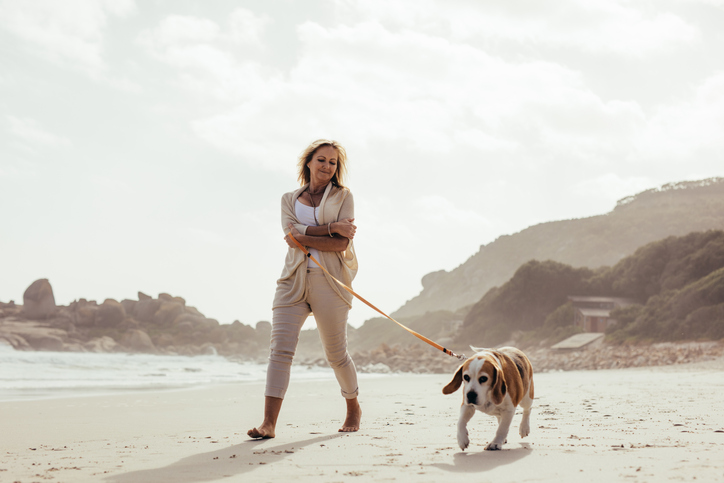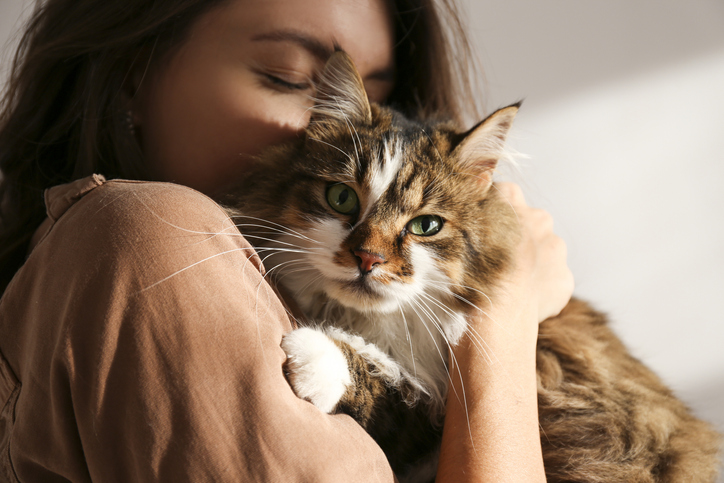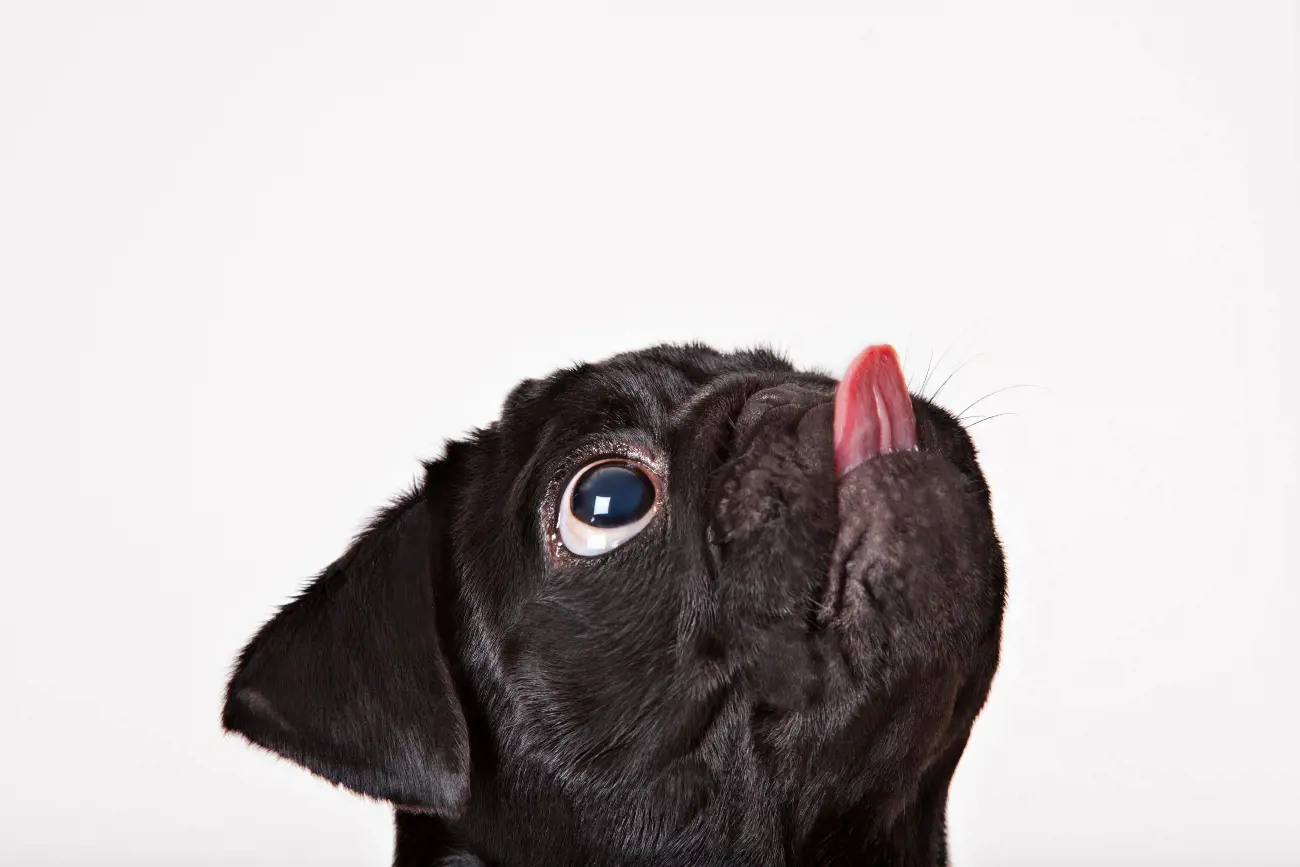Who will look after your pet when you die?
22nd December, 2021

As a pet owner, you might sometimes think about how long you’ve got left with your cat or dog. Their lifespans are much less than our own and pet insurance helps you to provide the care they need throughout their time with you.
However, have you thought about who might look after your pet after you’ve gone? Perhaps you’ve taken on a pet later in life? Perhaps you’re suffering from ill health and feel you can no longer look after your faithful friend. Whatever the circumstances, you need to think about who might take care of your canine or feline companion if you weren’t able to.
In this article, we’ll discuss some of the options available to you and how you can provide for your pet’s welfare in your will.

Planning for the future
You might be surprised to hear that the majority of UK dog owners have no plan in place for their four-legged friend if the worst did happen.
A recent survey by the Dog’s Trust revealed that a staggering 58% of dog owners did not have a contingency plan for their dog’s care with a third admitting that they’d never even thought about it.
Over half (58%) of those people surveyed assumed that a friend or family member would take on the responsibility but had not actually asked them.
And 6% even admitted that they had no one to turn to if they were unable to look after their canine anymore.
If you want to make provision for your pup, and you have nowhere else to turn, the Dogs Trust are encouraging owners to carry one of their Canine Care Cards.
Dogs Trust Chief Executive Owen Sharp said:
“Recent world events have shown that we never know what is around the corner and that life can be unpredictable. As a nation of dog lovers, we know the little quirks that make our dogs unique and I for one enjoy having the peace of mind that if the time ever comes when I can’t be with my dog, Dogs Trust is the next best place for her to be and they will never put a healthy dog down.”
In order to become a Canine Card Holder, the Dogs Trust ask that owners:
-
Assign a dig guardian – someone who can sign the dog over to them if you’re not able to. This could be a family member, friend or solicitor.
-
Leave clear instructions in your will. They suggest something along the lines of ‘It is my wish that Dogs Trust cares for and/or rehomes my dog at the time of my death’
-
Complete the application form with the name of the dog’s guardian and its microchip number
-
Receive your card – check your details and keep it in your purse or wallet so it can be found easily by others
The RSPCA also runs a similar scheme called Home for Life. If your pet outlives you they will look after and then attempt to rehome your pet in a suitable environment. Go to their website to download an information pack and get more details.
You could also try contacting the Cinnamon Trust. They run a nationwide community support network of volunteers who can come and help care for your pet if you are suffering from ill health – for example, if you’re no longer able to take them for a walk. They also offer a pet fostering service for people who have to go into hospital for a long time, and also a rehoming service if the owner does pass away.
Another option is the Blue Cross. They’ve been caring for animals for over 100 years and their Pet Peace of Mind service will step in to take care of your pet when you die if you want them to. It’s not just dogs and cats they look after – it’s horses, guinea pigs, hamsters and rabbits, too. The service is free but they encourage owners to leave the charity a gift in their will.
Battersea Cats and Dogs Home and the National Animal Welfare Trust can also help to rehome your animal should you no longer be able to care for them yourself.
Can I leave money to my pet in my will?
The short answer to this is no. You cannot leave financial gifts directly to animals in your will. But you can leave money in a trust for them and then appoint someone to look after that money in accordance with your wishes, so that the money gets used for their ongoing care.
In the Administration of Estates Act 1925 animals are classed as personal chattels which means you could also leave the pet to another person in your will – just make sure they know your intentions and are happy to become the new owner when you go.
Taking on a new pet is a big responsibility. Even if the person you have in mind is an animal lover, they may have to consider taking on a new pet and all the expenses and time that entails. Remember, they’ll have to pay for food, beds, toys, pet insurance and more.
Research from the PDSA suggests that ownership costs for a small dog can be anywhere between £4,600 up to £25,000 over their lifetime. If you’re considering taking on a larger pup that’s still relatively young, that could cost you up to £30,800 if they live to a ripe old age.
They may even need to consider how your pet gets on with their current animals. After all, it can take a long time for dogs and cats to get used to each other – especially if the new pet is coming to live in their domain!

Getting a pet in later life
If you’re not really a doggy person, cats make a great pet for older owners but with a couple of caveats.
Cats, as opposed to dogs, are undoubtedly easier to adequately look after for older people. They are fairly self-sufficient pets who don’t rely on their owners for exercise, going to the toilet or to keep themselves clean.
To ensure that a cat gets enough stimulation, older owners can buy a cat dangler or laser pen which will provide ample exercise for their four-legged felines.
Although cats might be low maintenance and not rely on their owners for much, that isn’t to say that felines are any less of a companion. Many cats are devoted to their owners – they might not always be as demonstrative as dogs, but they crave human company just as much.
Over time, cats will find comfort in their owners’ company – and the feeling is reciprocated. Research shows that owning a pet is good for your health, helping to reduce heart rate and lower blood pressure, which can reduce your risk of heart disease and strokes in the long term.
Owning a cat has benefits for mental health, too, with Age UK finding that depression, loneliness and isolation among older people have all been reduced by pet ownership.
The only thing that a cat asks is that they are provided with enough food for them to chomp through in a day, plus regular fresh water. They will also need their litter tray changing at least once a week. This is probably the most physically taxing aspect of owning a cat – if you’re not up to the task, there might be someone who is willing to pop in to change your cat’s litter tray; it only takes a couple of minutes.
However, there may come a time when an older person can no longer provide the care their cat needs. Should the cat start to show signs of neglect, it’s important to have that conversation about what’s best for the animal itself. That might be rehoming or giving it to a friend or family member to look after. But again, anyone taking on a cat needs to think about the financial aspects before saying yes and that includes getting adequate pet insurance in place.
Best dog breeds for those in retirement
If you’re thinking about getting a dog at any time of life, it’s always important to consider which breeds are best suited to your lifestyle. But that’s especially true for owners who have hit retirement age, when their mobility might not be what it once was.
For those who do not have the physical capacity to walk for hours a day, there is a breed of dog who won’t need too much exercise. Let’s take a look at the dog breeds which are best suited to owners who are retired:
-
Greyhounds - this might come as a surprise to some people, but greyhounds - despite their athleticism - don’t actually need that much exercise, explains Forever Hound Trust, a charity dedicated to rehoming greyhounds.
-
French bulldogs - generally speaking, it’s the smaller breeds which are made for retirees. French bulldogs might be small in stature, but they are big in personality, while their low-energy, cuddle-loving temperament is just what the doctor calls for as you look to settle into retirement. Their smaller size also means they don’t look out of place in a flat or bungalow where space is at a premium.
-
West Highland terriers - the ‘Westie’ is one of the most popular breeds with older people, and for good reason. Needing only about 40 minutes of exercise over the course of a day, they are about as low maintenance as dogs get. But you might need to do a decent amount of training with a Westie to ensure it adapts to a slower pace of life.
Other breeds of dogs which are suited to retirees include poodles (for those with a bit more energy left to give) and Shih Tzus.

Health benefits of dog ownership
Dog owners often talk about how their pet provides them with “a reason to get out of bed”. Some days, all you want to do is stay indoors all day, even though you know it’s not particularly good for your health – but as a dog owner, you simply have to force yourself outside.
Even if it’s just a gentle stroll to your local park, the exercise can do wonders for your health. It’s estimated that dog owners walk an average of 1,000 miles per year – that’s going to pay dividends, especially as you get older.
In fact, a recent study found that dog ownership can extend a person’s lifespan by reducing the risk of cardiovascular disease (among other things) And the more demanding your dog (hunting breeds are particularly energetic), the greater the health benefits.
It’s a myth that you need to be super-fit to live a long and healthy life. Just taking a daily stroll with your dog can lower your blood pressure, help you lose weight, reduce your risk of strokes and certain types of cancers, improve your lung performance and circulation, and boost your immune system. Walking is also good for your bones and joints.
It’s not only your physical health that can improve with dog ownership. Getting outdoors, taking some fresh air into your lungs and marvelling at nature can help to lift your mood. Obviously, there are other factors which influence your mental state – but it’s fair to say that dog ownership can have a positive impact overall.
If you want to read more about the health benefits of dog ownership, check out our blog about why dog owners tend to live longer.
Pet insurance for your pet’s whole life
In the majority of cases, our beloved animals will pass away before we do. As animal lovers ourselves we understand how difficult this time can be. That’s why we’ve prepared a handy guide on how to cope with the loss of a pet to give you tips on how to cope when the time comes.
But with lifetime insurance in place you can be sure you have the financial protection to help your friend right up until the end.
Benefits of pet insurance with Purely Pets include:
-
Free 24-Hour Vet Helpline
-
Lifetime cover up to £15,000
-
Easy policy management online
Talk to the friendly team today to protect your cat or dog in an instant.
Helpful Pages
Recent Posts

Why do Pugs lick the air?
02/10/24Pet Insurance Quote
- 98% claims paid *
- Claims paid directly to vets
- 24/7 vet video consultations
- Interest free monthly payments



